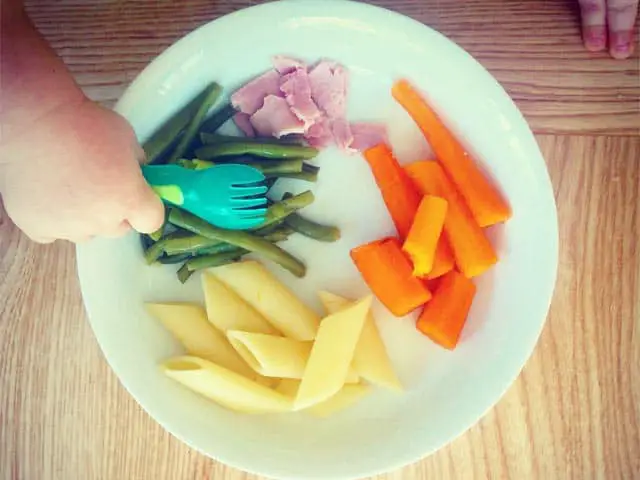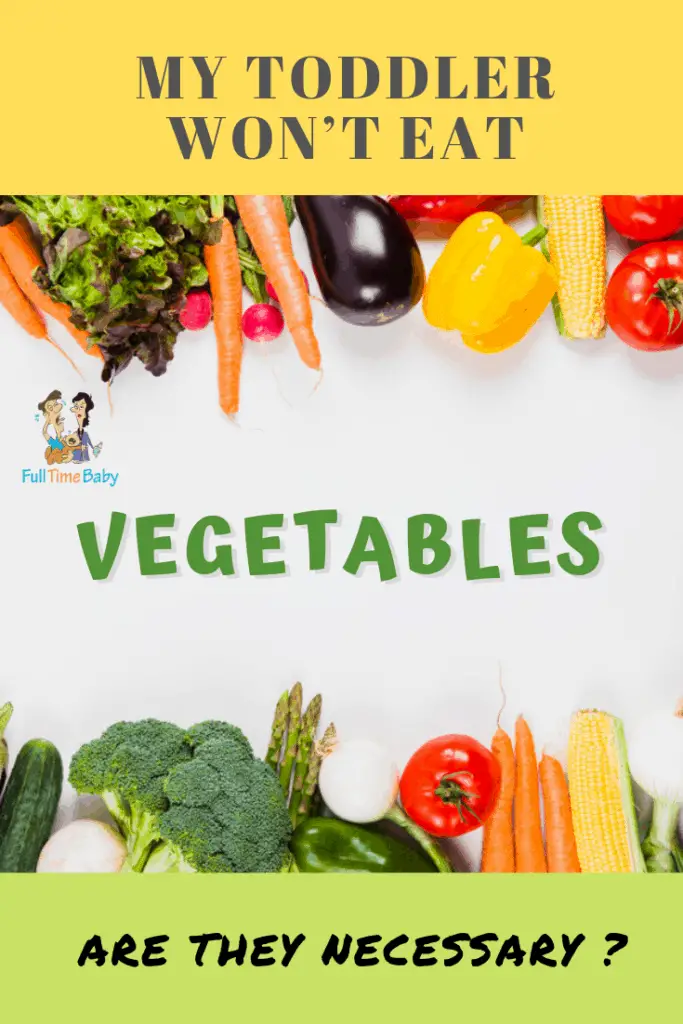When children first start on solids, everything is new and they may want to try everything. But, at some point, even the most adventurous kids turn into picky eaters that might have to learn to love vegetables. It is enough to make a parent want to throw their hands in the air and ask whether toddlers really need to eat vegetables. You are not alone if no matter what you try, your toddler still won’t eat vegetables.
The Science of Why Toddlers Hate Vegetables
Even if you love munching on kale and carrots now, chances are that you also hated vegetables as a toddler. There is a scientific reason for this.
According to sensory and food science professor Russel Keast, our reasons for hating vegetables has to do with evolution.
As Keast tells Huffington Post here, many toxic plants have a bitter taste. Our ancestors had to learn to distinguish these toxic foods and did so by developing an aversion to bitter foods. This is the same reason that kids will find bitter drinks like coffee unpalatable, even though we love them as adults.
The evidence shows that kids have a higher sensitivity to bitter foods than adults. Over time though, we build up a taste for bitter foods through exposure – hence why studies find that you need to try a food 10 to 15 times before deciding whether we like it or not.
Other Reasons Toddlers Hate Vegetables
It isn’t just bitterness aversion which makes toddlers picky eaters. Here are some other potential reasons why your kids aren’t eating their vegggies:
- Evolution preference towards high-energy foods: Kids need a lot of energy, so our bodies have evolved to prefer sweet, sugary foods. Of course, in a modern world where food is readily abundant, this preference backfires and we end up with a childhood obesity epidemic!
- Paired associative learning: this refers to the psychological concept of pairing a stimulus and a response. As far as food goes, kids learn early on to associate junk foods with happy occasions like birthday. Vegetables they associate with nagging at the dinner table.
Why Vegetables Are A Part of Our Diet
As frustrating as dinnertime with your picky eater is, you still try to find ways to get your toddlers to eat their veggies. Maybe even as parents have been pre-programmed since childhood to swallow dark leafy greens, like it or not.
Vegetables contain a wide range of nutrients that can’t be found in other types of foods, or can’t be found in the proper ratios.
Here are just some of the main evidence-driven reasons your toddlers must eat vegetables.
1. Eating Vegetables Improves Immunity
Vegetables contain important antioxidants such as phytonutrients for boosting the immune system.
It isn’t just cold and flus that veggies prevent. Research shows that, because of the boost in immunity that veggies give, kids who don’t eat fruits and vegetables are 53% more likely to develop asthma!
2. Eating Vegetables Helps Prevent Childhood Obesity
Childhood obesity is a major epidemic in the Western world. According to the CDC, nearly 9% of children aged 2 to 5 are obese. In the 6 to 11 age group, the numbers skyrocket to 20%.
All parents should be worried about the childhood obesity epidemic, especially because of all of the health and social-stigma issues that come with obesity. Having your toddler regularly eat vegetables is one way to help prevent obesity.
Numerous studies, such as this study, have found that increased vegetable intake reduces the risk of obesity because:
- Vegetables have a low calorie-to-density ratio because they are high in water and fiber and low in fat.
- Vegetables are rich in fiber, which helps us feel full faster.
- Vegetables don’t cause blood sugar spikes and successive drops, which helps keep food cravings in control
- Vegetables support a healthy digestive system and metabolism, which are important for weight management.
3. Eating Vegetables Helps Keep Your Child’s Heart Healthy
Heart disease is currently the #1 killer in the United States. You might think of heart disease as a problem plaguing adults, but it is affecting children too.
Researcher Geetha Raghueveer studied the eating habits and health of children in a study. She found plaque could start forming in children’s arteries even before they finish kindergarten! Her research found that some children had arteries similar to those of 40-year-olds!
To make matters worse, research has found that eating more veggies as an adult doesn’t make up for lack of consumption as a child. Your child needs to eat veggies now if he or she is going to have a healthy heart later in life.
4. Inadequate Vegetable Intake Leads to Health Problems Later in Life
Cancer is a condition which most commonly affects older people. However, the research is showing that how we eat as children affects our risk of cancer as adults.
Dr. Lesley Walker, Director of the Cancer Research Campaign, told Telegraph, “the reluctance of children to follow a healthy diet could have serious implications on their health later in life.”
It isn’t just cancer that kids who don’t eat their veggies are at increased risk of. Other risks include:
- Type 2 diabetes
- Osteoporosis
- Gastrointestinal disorders
How Many Veggies Should Your Toddler Be Eating?
In the USA, the dietary recommendations for toddlers are:
- 1 Year of Age: 3/4 cup of vegetables per day
- 2 to 3 years of age: 1 cup of vegetables per day
The serving sizes are ¼ a cup for 1 year of age, and 1/3 a cup for 2 to 3 years of age. This means that your toddler needs to be eating vegetables with lunch and dinner, and at least for one snack.
Can’t My Toddler Just Take a Multivitamin Instead of Eating Vegetables?
Vitamin and mineral supplements might seem like a good alternative to vegetables for picky eaters. However, no vitamin gummy bear can replace the nutritional benefits of eating vegetables.
Why? Because it isn’t just that vegetables contain nutrients. The benefit comes from the fact that vegetables contain multiple types of nutrients that work in tandem together.
For example, you might know that the body needs vitamin D to absorb calcium (hence why most calcium supplements contain vitamin D and milk is often fortified with vitamin D). But did you know that the body also needs vitamin K and minerals like magnesium to properly utilize calcium in the body?
Without these supporting nutrients, the calcium from your supplement could just end up solidifying in your arteries as plaque. Yes, taking calcium supplements is linked to higher rates of cardiovascular disease!
Vegetables also contain important phytonutrients and trace nutrients which can’t be found in most supplements. There are also issues with supplements like the fact that your body might not absorb nutrients from supplements.
In Short?
Ideally your toddler eats vegetables! Not only are vegetables great for your child’s health today, but for establishing good dietary habits in the future.
Additional article resources: WHO, Sharecare, CDC, Spoon University, Psychology Encyclopedia, Atkins, Dr. Axe, Parents.com, Time




